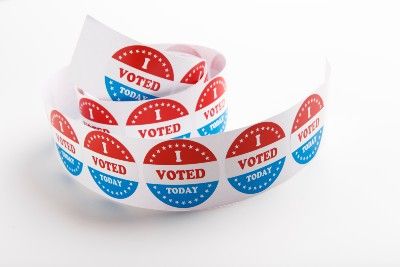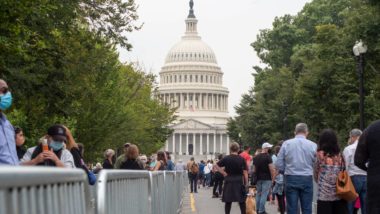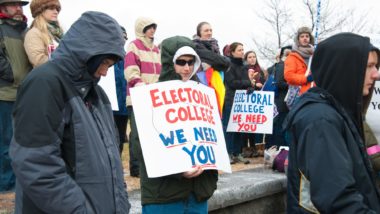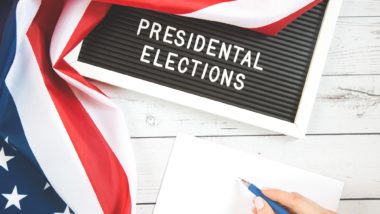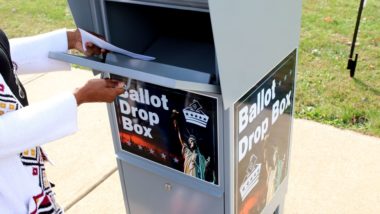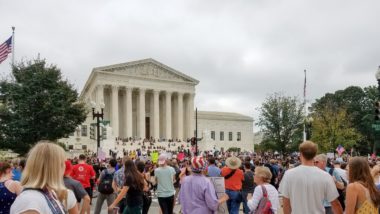Top Class Actions’s website and social media posts use affiliate links. If you make a purchase using such links, we may receive a commission, but it will not result in any additional charges to you. Please review our Affiliate Link Disclosure for more information.
A conservative watchdog group has filed a federal lawsuit to force a purge of inactive Colorado voters from the rolls in the midst of what’s already been a contentious election season.
Judicial Watch Inc. and three Colorado voters say the state has failed in its duty to update voter registration records by not clearing inactive voters from the books. The group says it has conducted two studies, one in 2019 and one earlier this year, that showed most counties had more voters registered than should be eligible in both years.
Now it wants the court to force the state to purge the registrations in keeping with requirements in the National Voter Registration Act.
“Judicial Watch used the same methodology and the same data sources to determine the registration rates of other counties and states,” the new lawsuit says. “The percentage of Colorado counties with registration rates exceeding 100% was the highest in the nation.”
The National Voter Registration Act “requires states to conduct a general voter registration list maintenance program that makes a reasonable effort to remove ineligible persons from the voter rolls by reason of the person’s death, or a change in the residents of the registrant outside of the jurisdiction.”
Voters who have moved should be removed from a voting district’s rolls if the voter confirms in writing they have moved, or fails to respond to an address confirmation notice and then fails to vote during the next two general federal elections.
If a voter fails to respond and fails to vote in the next two federal elections, but has not yet been purged, they are considered inactive but can still vote, according to the Judicial Watch lawsuit.
In June of every odd-numbered year, the U.S. Election Assistance Commission reports to Congress on state voter registration. The report includes detailed information, gathered from each state, about the voter rolls and the numbers of active, inactive and purged voters.
Judicial Watch said it has analyzed the election commission’s most recent report and compared it against census data gathered though the American Community Survey and found in each of the last two years most Colorado counties have more registered voters than should be eligible.
“In the summer of 2019, Judicial Watch found 40 of Colorado’s 64 counties — or 62% of the total number — had registration rates exceeding 100%,” the lawsuit says.
A registration rate of more than 100% means there are more registrations than citizens old enough to register.
“The results of the September 2020 study are consistent with the results of the summer 2019 study, showing that Colorado’s high registration rates evidence an ongoing, systemic problem,” Judicial Watch’s lawsuit says.
The lawsuit, filed in U.S. District Court for the District of Colorado on Monday, lists Colorado Secretary of State Jena Griswold and the state as a whole as defendants. The three individual Colorado voters who are listed as plaintiffs are Elizabeth Miller, Lorri Hovey, and Mark Sutfin.
Judicial Watch filed a similar lawsuit against the state of Pennsylvania in August.
Talk of the potential for voter fraud has reached a fever pitch in recent weeks, with President Donald J. Trump casting doubt on the integrity of the general election mostly due to an increase in the number of voters opting for mail-in ballots.
Many residents are choosing the mail-in option to avoid any risk of catching COVID-19 amid the ongoing pandemic. Voting rights advocates on both ends of the political spectrum have been filing lawsuits over new rules and restrictions or allowances being put into place by governors across the country.
A spokesperson for Secretary of State Griswold told KOAA, the NBC affiliate station in Denver, the Judicial Watch lawsuit is a partisan effort to undermine the election based on outdated information. “The population of our state has grown considerably over the last several years and the number of registered voters has predictably increased as well,” KOAA quoted Communications Director Betsy Hart as saying. “We are confident the State of Colorado will win this lawsuit.”
Judicial Watch President Tom Fitton said the group’s findings point to a “direct threat to free and fair elections.”
“With its inaction, Colorado has failed its citizens and opened itself up to potentially be the victim of massive voter fraud,” he said in an announcement about the lawsuit posted on the group’s website.
Are you registered to vote in Colorado? Do you know any ineligible voters who still on the voter rolls? Tell us about it in the comment section below.
Judicial Watch and the Colorado voters are represented by T. Russell Nobile and Robert D. Popper of Judicial Watch and H. Christopher Coates of The Law Offices of H. Christopher Coates.
The Colorado Voters Lawsuit is Judicial Watch Inc., et al. v. Jena Griswold, et al., Case No. 1:20-cv-02992, in the U.S. District Court for the District of Colorado.
Read About More Class Action Lawsuits & Class Action Settlements:
Lawsuit Filed to Stop Minneapolis From Using Private Election Grant
Trump Campaign Lawsuit Seeks Access to Philly Satellite Election Offices
New Laws Aim to Protect California Students from Sexual Assault


